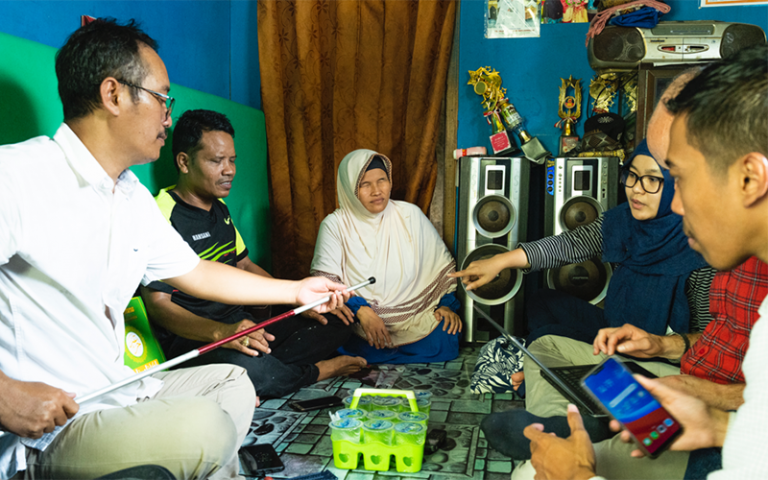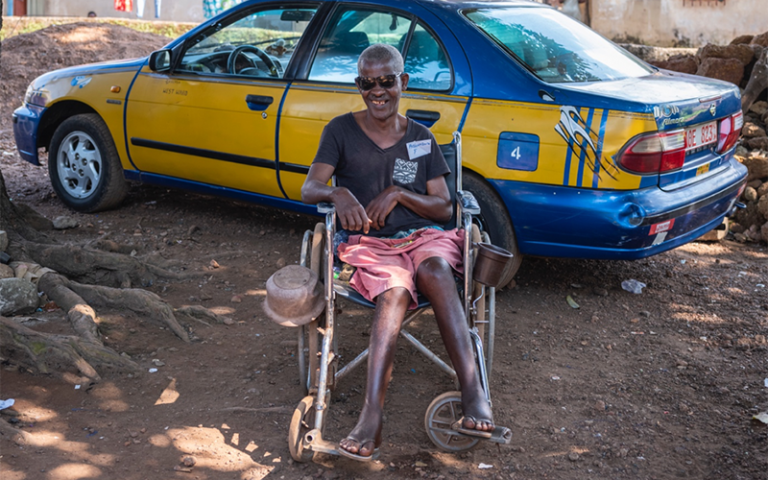DPU’s AT2030 research project celebrates International Day of People with Disabilities
3 December 2019
The research project is being undertaken alongside Kota Kita and SLURC as the implementing partners, and is being led by DPU's Julian Walker and Ignacia Ossul Vermehren. Work has been conducted in informal settlements in Freetown, Sierra Leone and Banjarmasin, Indonesia

On International Disability Day 2019, new research by The Bartlett Development Unit (DPU), together with the Sierra Leone Urban Research Centre (SLURC) and Kota Kita in Indonesia, has found that inclusive mobility, social inclusion and access to healthcare - including assistive products like wheelchairs, eye glasses, walking sticks and prosthetic limbs - are the top priorities for disabled dwellers.
The International Day of Persons with Disabilities (IDPD) has been annually celebrated around the world on 3rd December since 1992. This year’s theme is ‘promoting the participation and leadership of people with disabilities’, focussing empowerment for inclusive, equitable, sustainable development under the Sustainable Development Goals’ commitment to ‘leave no one behind’.

Working with the communities in both countries the research team from DPU have been holding workshops for the past six weeks for people with disabilities and AT users to identify their main aspirations, or priorities for change. This week, on 2nd and 4th December, the communities in Freetown held two final events to share their findings with stakeholder and leaders and to celebrate International Day of Disability with distinguished guests.
The work is part of a bigger project entitled AT2030, which continues next year when the communities will co-design interventions which will test ideas to address their aspirations. AT2030 is a global programme funded by UK Aid, seeking to find out ‘what works’ to get Assistive Technology to the people that need it around the world. The programme is working in 15 countries, across Africa and Asia, with global partners such as the WHO and UNICEF and the Clinton Health Access Initiative (CHAI) as well as local partners. The AT2030 programme is led by the GDI Hub, based at UCL in London. Find out more here: www.at2030.org.
DPU's Julian Walker is the Principle Investigator and Ignacia Ossul Vermehren is the lead Research Fellow in the AT2030 research project. Victoria Austin is a PhD Candidate and AT2030 Director at GDI Hub.
Photo Credits: Angus Stewart
 Close
Close

